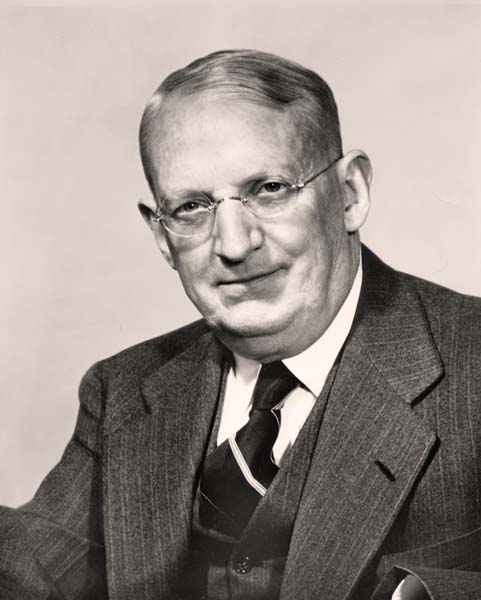C.E. Kenneth Mees

OSA Honorary Member Charles Edward Kenneth Mees, a British physicist and photographic researcher, was born in 1882 in Weillingborough, England. He attended the University of London and was awarded a D.Sc. in 1906 based on his dissertation on photographic theory. From 1906 until 1912 he worked for Wratten and Wainwright, Ltd., assisting Frederick Wratten in developing the first panchromatic photographic plates, as well as light filters and safelights for the darkroom.
In 1912 the Eastman Kodak Company acquired Wratten and Wainwright because they were interested in the skills Mees provided. He moved to the United States and set up the Kodak Research Laboratories in Rochester, N.Y., becoming the lab’s first director. Later he was named vice president in charge of research and development for Eastman-Kodak, and remained at that position until he retired in 1955.
During his career he published 100 scientific papers and 60 other works. Among his accomplishments was the development of sensitive photographic emulsions for use in astronomy. The C.E.K. Mees Observatory at the University of Rochester honors his pioneering work as does the naming of a crater on the far side of the Moon. A solar observatory in Hawaii also bears his name.
In 1957, he was named an Honorary Member of the Optical Society in recognition of his preeminent service in the advancement of optics. Mees received numerous awards for his work including the Silver Medal of the Royal Society of Arts, the Royal Photographic Society’s Progress Medal, the National Academy of Sciences Henry Draper Medal, and the Rumford Medal of the American Academy of Arts & Sciences. A year after his death, OSA memorialized him by establishing the C.E.K. Mees International Medal which recognizes interdisciplinary and international contributions to the field of optics.
He was also a fellow of a number of societies including the Royal Society of London, the Royal Photographic Society, the American Association for the Advancement of Science, and the Society of Motion Picture Engineers. He was a member of the American Philosophical Society and the National Academy of Sciences.
C.E. Kenneth Mees died 15 August 1960.
The continuance of effective research in pure organic chemistry is largely dependent upon the establishment of a satisfactory source of synthetic organic reagents. No such source is at present in sight.... Unless something is done immediately, organic research will languish....
Document Created: 26 Jul 2023
Last Updated: 28 Aug 2023
